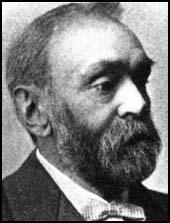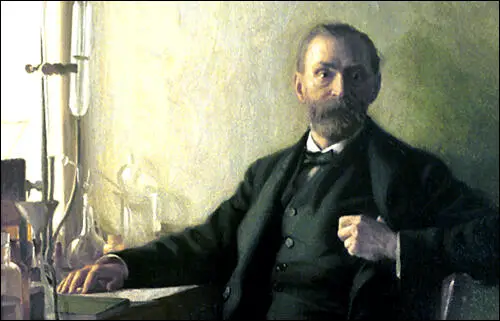Alfred Nobel

Alfred Bernhard Nobel was born in Stockholm, Sweden in 1833. The son of an engineer, he moved in his childhood to Russia, where his father was working on an underwater mine. Alfred studied Chemistry in Paris and worked for a time in the USA before returning to Sweden in 1859.
In 1866 Nobel produced what he believed was a safe and manageable form of nitroglycerin called dynamite. He established his own factory to produce it but in 1864 an explosion at the plant killed Nobel's younger brother and four other workers. Deeply shocked by this event, he now worked on a safer explosive and in 1875 came up with gelignite.
Other inventions followed including ballistite, a form of smokeless power, artificial gutta-percha and a mild steel for armour-plating. As well as manufacturing goods, Nobel also successfully obtained oil from the Baku in Aberbaijan.
By the time Alfred Nobel died on December 10th 1896, he had obtained a massive fortune. He left instructions that most of his money should be used to endow annual Nobel prizes. The very first awards were made in 1901 on the fifth anniversary of Nobel's death.

The Nobel prizes are awarded to those who have contributed most to the common good in the areas of Physics, Chemistry, Medicine, Literature and Peace (a sixth for Economics, which is financed by the Swedish National Bank, was first awarded in 1969). The prizes have a large cash award and are given to organizations such as the United Nations peacekeeping forces, which received the Nobel peace prize in 1988.
Individuals who have won the award include Jean Henri Dunant (1901), William Randal Cremer (1903), Theodore Roosevelt (1906), Elihu Root (1912), Woodrow Wilson (1919), Gustav Stresemann (1926), Jane Addams (1931), Arthur Henderson (1934), Cordell Hull (1945), Emily Balch (1946) and Martin Luther King (1964).

